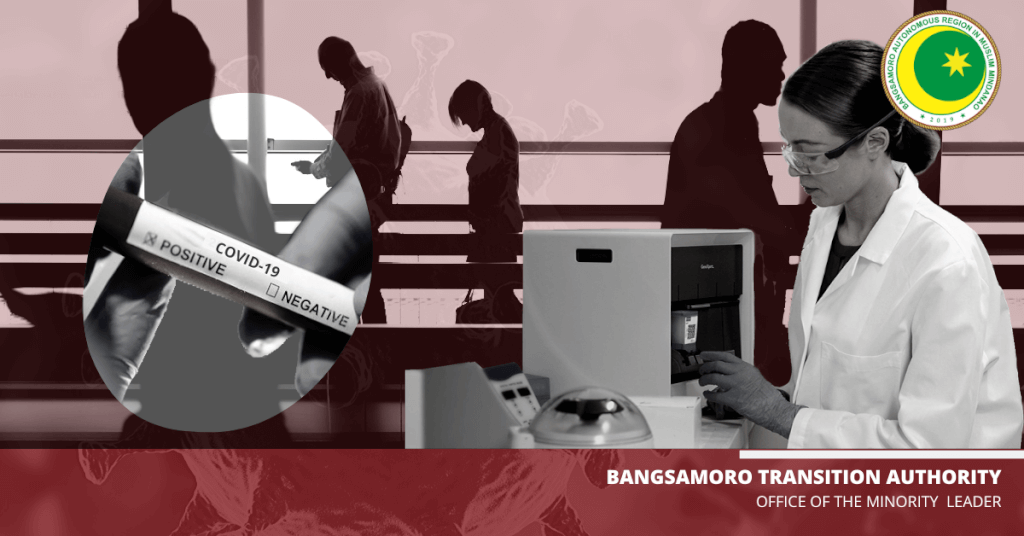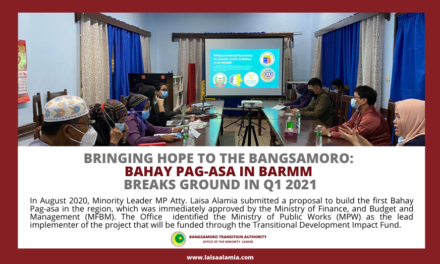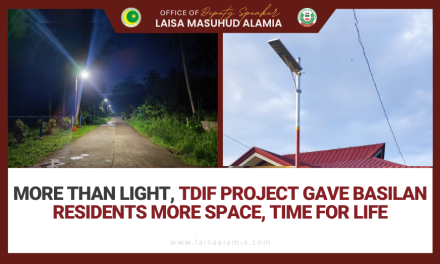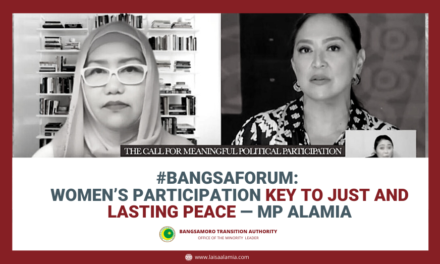In response to increasing calls for mass testing as the number of coronavirus disease (COVID-19) cases continues to rise in the Philippines, Minority Leader Laisa Masuhud Alamia pushed for the activation of provincial diagnostic facilities with existing GeneXpert Systems that can be used for SARS-CoV-2 testing, and a mobile health facility for COVID-19 testing in areas that need a diagnostic capacity.
MP Alamia sent her recommendations regarding the region’s COVID-19 response to the Office of the Chief Minister last March 24. These recommendations were shared upon learning that the United States Food and Drug Administration (FDA) has granted an emergency use authorization for the Xpert Xpress SARS-CoV-2 test by Cepheid, a molecular diagnostics company based in California. The same company is also behind the GeneXpert System, having deployed 23,000 units of the said system worldwide.
While the GeneXpert System was originally intended to conduct rapid tests needed to diagnose drug-resistant strains of tuberculosis (TB), it can also process Cepheid’s new SARS-CoV-2 test. The system has also been previously adapted to enable testing for other pathogens such as influenza, ebola, and hepatitis C.
The Philippines’ own FDA has just recently approved Cepheid’s SARS-CoV-2 test for use in the country.
The GeneXpert System is used all over the Philippines as part of the national tuberculosis control program, and all five provinces of the Bangsamoro region have it. However, a software upgrade may be needed for the GeneXpert System units to work with the newly-approved SARS-CoV-2 tests.
MP Alamia has advised the regional government to facilitate testing across the region through the Ministry of Health (MOH), in coordination with the Philippine Business for Social Progress (PBSP) and the national Department of Health. Coordination is key to the success of testing, given the inevitable procurement and acquisition of supplies necessary to conduct testing.
Apart from activating provincial diagnostic facilities, MP Alamia also strongly suggested setting up a mobile diagnostic facility, one that adopts the practices, procedures, and core requirements of a Biosafety Level 2 (BSL2) facility. This will involve having a biosafety molecular laboratory, calibrating equipment, capacity building among personnel, and allocating operational costs for at least one month. This can be facilitated by the BARMM Inter-Agency Task Force together with the MOH, in coordination with the national Department of Health and experts from the University of the Philippines – Mindanao.
The process of coursing the funds needed for these initiatives from the regional Quick Response Fund and other emergency funds may be looked into and led by the Ministry of Finance, Budget, and Management; while the Ministry of Public Works can work with the MOH in constructing mobile laboratories or refurbishing existing laboratories or other medical facilities in the region to meet the necessary BSL2 standards.
Latest developments in the regional government’s response echoes some of these recommendations, as BARMM’s minister of health announced yesterday that the regional government is in contact with Dr. Sherjan Kalim, MD of the Cotabato Regional Medical Center (CRMC)’s pathology department. CRMC has a medical laboratory that is BSL2-compliant, and the health ministry is looking into the possibility of installing similar laboratories in other hospitals across the region.
Based on the latest regional data, there are currently 185 persons under investigation (PUI) and 6,697 persons under monitoring (PUM) as of March 26. There have been five confirmed COVID-19 cases across the region — two are admitted in a hospital, one is under strict home quarantine, and two have died of the disease. One died while waiting for their COVID-19 test result, which was later found to be positive.








